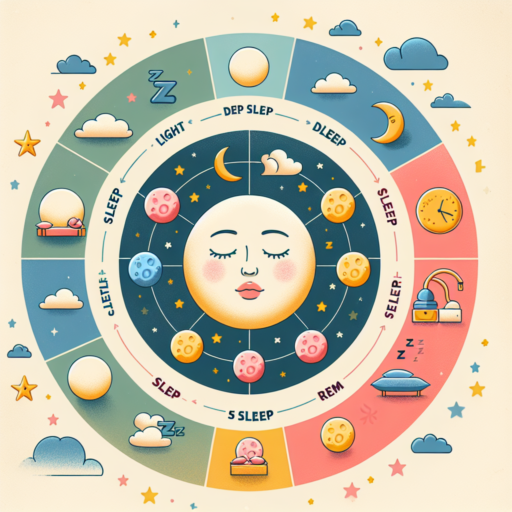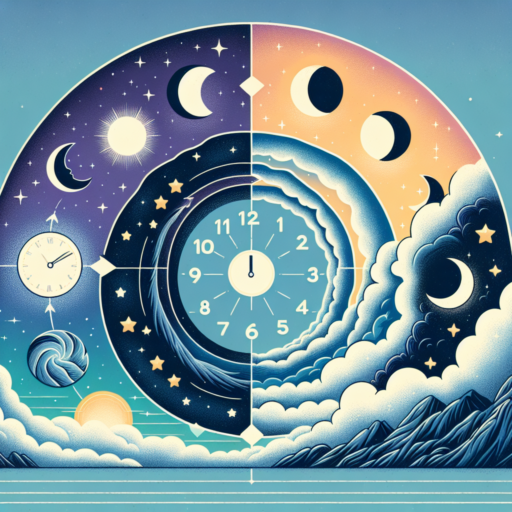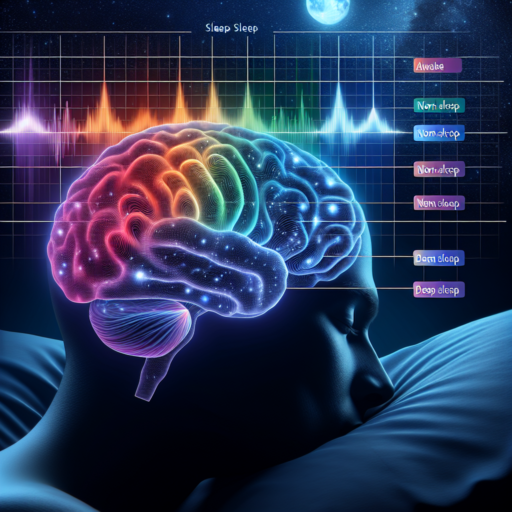What is the ideal ratio of sleep stages?
Understanding the ideal ratio of sleep stages is crucial for maximizing restorative sleep and enhancing overall health. The sleep cycle is divided into several stages: Wake, Light Sleep, Deep Sleep, and REM (Rapid Eye Movement) sleep. Each plays a vital role in ensuring a restful night and contributing to various physical and mental recovery processes.
The Significance of Each Sleep Stage
Light Sleep acts as a transition period between wakefulness and deeper sleep stages, playing a role in memory consolidation and relaxation. Deep Sleep is critical for physical recovery, cell regeneration, and immune system strengthening. REM Sleep, the stage most associated with dreaming, is essential for brain functions, including memory processing and emotional regulation. The Wake stage, though not a part of restorative sleep, is essential for correctly transitioning through other sleep stages.
An optimal sleep stage ratio often includes a higher proportion of Deep and REM Sleep. A typical adult’s sleep cycle begins with Light Sleep, progresses to Deep Sleep, and then moves into REM Sleep. Throughout the night, the duration of REM sleep periods increases, peaking in the early morning hours. This cycle repeats approximately every 90 minutes.
The ratios can vary based on age, lifestyle, and individual health conditions, but a general guideline suggests striving for 50-60% Light Sleep, 20-25% Deep Sleep, and 20-25% REM Sleep. Balancing these stages appropriately ensures that the body and mind can recover fully, leading to improved mood, cognitive function, and physical health.
No se han encontrado productos.
Which is better, REM or deep sleep?
Understanding the intricacies of our sleep cycles is essential for optimizing our health and well-being. When comparing REM (Rapid Eye Movement) sleep to deep sleep, it’s important to recognize that each stage serves unique and critical functions in our mental and physical restoration. REM sleep is often associated with vivid dreaming, and it plays a key role in memory consolidation and mood regulation. On the other hand, deep sleep is crucial for physical recovery, tissue repair, and immune system strengthening.
Benefits of REM Sleep
REM sleep is known for its contribution to emotional and psychological health. During this phase, our brain processes emotions, solidifies memories, and supports learning. A night rich in REM sleep can enhance creative problem-solving skills and overall cognitive function. The mind utilizes this time to organize thoughts and experiences from the day, making it pivotal for emotional resilience and memory consolidation.
Advantages of Deep Sleep
Deep sleep, or slow-wave sleep, is the most restorative sleep stage, lowering the heart rate and relaxing the muscles to facilitate healing and growth. This stage is crucial for hormone regulation, including the release of growth hormone vital for development and metabolism. A significant portion of the body’s physical restoration occurs during deep sleep, highlighting its importance for athletes and individuals recovering from injuries or illnesses.
What is a normal healthy sleep cycle?
Understanding the intricacies of a normal healthy sleep cycle is crucial for maintaining overall health and well-being. This cycle, also referred to as the sleep-wake cycle, involves various stages, each playing a pivotal role in ensuring the body and mind get the restorative rest they need. The cycle encompasses both Non-Rapid Eye Movement (NREM) and Rapid Eye Movement (REM) sleep, transitioning through specific phases throughout the night.
The sleep cycle begins with NREM sleep, which is divided into three stages. The first stage is a light sleep from which one can wake up easily. It serves as a transition from wakefulness to sleep. The second stage sees a deeper level of sleep, where the heart rate slows and body temperature drops. The body is preparing for deep sleep in this phase. The third stage of NREM sleep is where deep sleep occurs, which is essential for physical renewal, hormonal regulation, and growth. Following these three stages, the cycle transitions into the REM phase, marked by rapid eye movements and is the period associated with dreaming. The brain is active during REM sleep, and this phase is important for emotional and mental health.
Each complete cycle lasts about 90 to 110 minutes, and a person typically goes through four to six cycles per night. A disruption in any part of these cycles can impact the overall sleep quality, affecting an individual’s health. Therefore, understanding and maintaining a normal healthy sleep cycle is vital for long-term physical and mental well-being.
What is the best sleep cycle intervals?
Finding the optimal sleep cycle intervals can be key to waking up feeling refreshed and ready to tackle the day. The ideal sleep cycle, consisting of light sleep, deep sleep, and REM (rapid eye movement) sleep, lasts about 90 to 110 minutes. Experts suggest aiming for four to five complete sleep cycles per night to achieve the best rest possible.
Understanding the structure of these cycles is crucial. Deep sleep occurs early in the night and is essential for physical recovery and growth, while REM sleep, which occurs more frequently as the night progresses, plays a vital role in cognitive functions and emotional health. Balancing these stages by determining the right intervals can help improve sleep quality significantly.
Optimal Sleep Cycle Intervals
- First Interval (90 to 110 minutes): Initiates with light sleep, progressing to deep sleep. This stage is critical for physical rest and recovery.
- Mid-Night Intervals: As the night continues, cycles will include less deep sleep and more REM sleep, facilitating brain functions and memory consolidation.
- Final Intervals: Prioritize REM sleep, enhancing creativity, problem-solving skills, and emotional regulation.
Adjusting to these intervals by creating a consistent bedtime routine can not only enhance sleep quality but also contribute to overall health and wellbeing. Remember, individual needs may vary, and it could be beneficial to experiment with these intervals to discover what works best for you.




